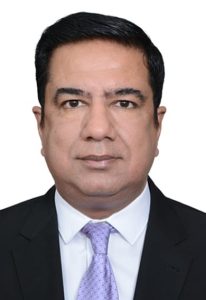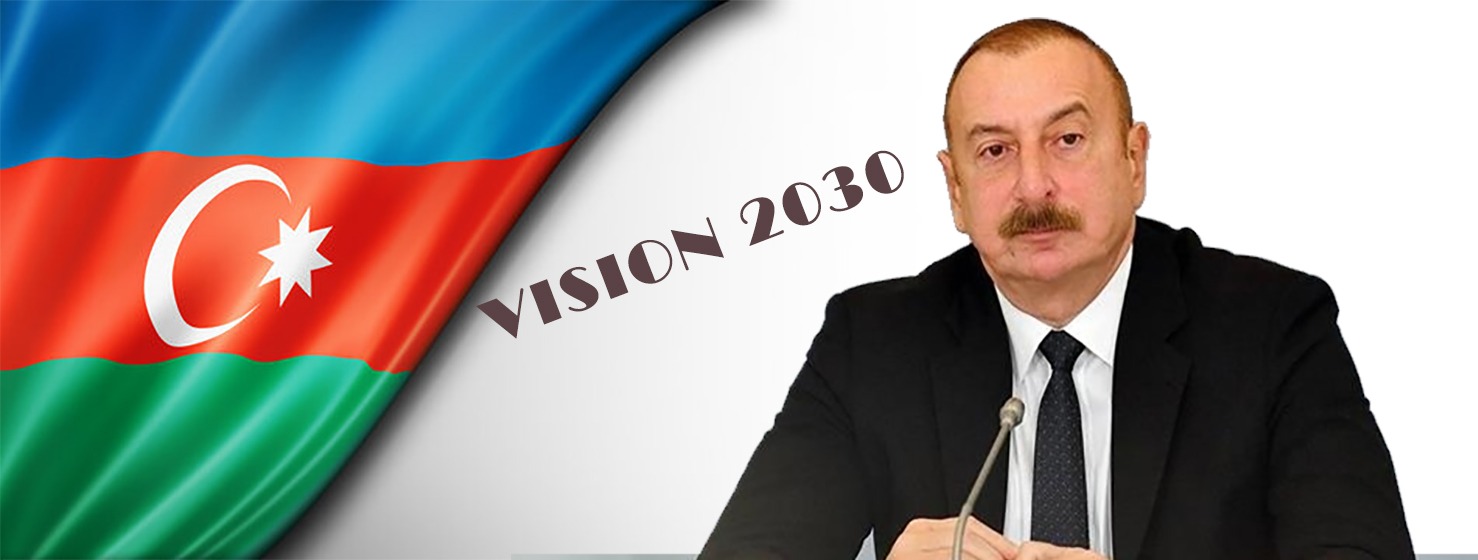
President Ilham Aliyev’s
Azerbaijan’s journey towards socio-economic progress sets the stage for sustainable growth and prosperity. Since gaining independence, the country has achieved significant milestones, leading to a remarkable modernization fueled by economic growth.
This transformation encompasses a wide range of initiatives, from building new transportation corridors to engaging displaced populations in liberated territories and enhancing human capital.
Azerbaijan has recognized the imperative of diversifying its economy, particularly in the non-oil sector. The IT sector is a pivotal component of Azerbaijan’s economic development. Investments in this sector are driving technological advancements and innovation.
Azerbaijan is making strides in the chemical industry, fostering growth and promoting the manufacturing of chemical products. The light industry is experiencing growth, contributing to the country’s economic diversification. Developing robust transportation and logistics infrastructure is a cornerstone, and the agricultural sector is vital to ensuring food security and supporting rural communities.
Support mechanisms are being actively implemented to stimulate production, improve export structures, foster export-led growth, and promote the “Made in Azerbaijan” brand. This commitment to diversification is a testament to Azerbaijan’s forward-looking approach.
In 2022, real GDP growth reached 4.6 percent, while the non-oil sector grew at an impressive rate of 9.1 percent, reflecting the success of diversification efforts. Notably, the non-oil and gas sector’s share in GDP reached 47.8 percent, marking significant progress.
President Ilham Aliyev’s launched both Azerbaijan’s Vision 2030 and the Socio-Economic Development Strategy for 2022-2026, marking a pivotal moment in the country’s journey toward socio-economic transformation as these initiatives work in unison to reshape Azerbaijan into a thriving, diversified, and resilient economy.
The period from 2022 to 2030 represents a new and transformative phase for Azerbaijan, shaped by the challenges of the post-COVID-19 and post-conflict landscape. During this time, the nation aspires to create a society of well-being through inclusive development.
The focus is on adopting state-of-the-art and sustainable growth drivers, prioritizing innovation, financial stability, and global value chain integration, and implementing a new generation of structural and institutional adjustments.
Azerbaijan’s Vision 2030
Azerbaijan’s Vision 2030 represents a holistic plan for sustainable socio-economic development. The nation’s journey has been marked by significant achievements and forward-looking strategies. Azerbaijan emphasizes infrastructure development, a creative and innovative society, job creation, and foreign investments.
These initiatives are crucial for the transition from an oil-based economy to a diversified and inclusive one.
The vision for 2030 is underpinned by inclusivity and social justice, ensuring that all segments of society benefit from the nation’s progress. Recognizing the importance of skilled and competitive human capital, Azerbaijan is making investments in education, training, and professional development.
Rebuilding and developing the recently liberated regions is a significant component of the development plan, requiring substantial financial investment. Azerbaijan is committed to promoting environmental sustainability and green growth.
Azerbaijan recognizes the importance of intensifying economic reforms to facilitate foreign trade and improve the business and investment climate. To this end, a favorable economic and investment environment has been established, including various tax-related benefits, public-private partnerships, and preferential loans.
Azerbaijan’s Socio-Economic Development Strategy for 2022-2026
Azerbaijan’s Socio-Economic Development Strategy for 2022–2026 is a testament to the nation’s commitment economic diversification and inclusive development. The plan signifies a substantial financial investment, with a budget of $19.2 billion allocated for its implementation.
A significant portion of amount is directed towards the Great Return to the recently liberated territories, underscoring the government’s commitment to their reconstruction and development.
The objective is to enhance living standards, create job opportunities, and foster competitive human capital, which is integral to the nation’s overall success. It aims to transform the country into a thriving, diversified, and resilient economy, fostering prosperity for all of its citizens while actively engaging with the global community.
Azerbaijan has established several Free Economic Zones (FEZs) to attract foreign investment, stimulate industrial growth, and facilitate international trade. The Alat Free Economic Zone, in particular, plays a crucial role in boosting foreign investment in the non-oil sector. It offers tax benefits, modern infrastructure, and connectivity to major transportation networks.
Conclusion
President Ilham Aliyev’s leadership is committed to improving the welfare of its population, building a socially-oriented market economy, and fostering innovation. His vision recognizes the importance of enhancing living standards, achieving sustainable growth, and ensuring productive human capital plays a vital role in the nation’s progress.
In the face of turbulent times, Azerbaijan’s dedication to enhancing the business climate, attracting foreign investments, and pursuing sustainable development is evident. Azerbaijan achievements and resilience position it on a promising path to becoming a powerful state with a high standard of living for its citizens.





